Year 2: Wellbeing
Use this unit hub to inform your medium-term plan and navigate to related resources.
The Curriculum and Assessment Review final report has been released. We’re reviewing the recommendations and planning for future updates. Learn more
- Subjects >
- Wellbeing >
- Key stage 1 >
- Year 2 >
-
Year 2: Wellbeing
Unit outcomes
Pupils who are secure will be able to:
- Understand how perseverance can provide an opportunity to solve a problem and improve our skills and knowledge.
- Identify appropriate compliments to give to others.
- Provide examples of the positive attributes of others.
- Clarify ways of showing generosity to others.
- Discuss how being generous can benefit themselves and others.
- Take notice of different feelings.
- Select colours and marks to represent different feelings.
Suggested prior learning
Year 1: Wellbeing
Get startedLessons
Discover: Perseverance
- To discover the importance of perseverance.
Take notice: Colour expression
- To take notice of different feelings using colour and mark making techniques.
Connect: Compliments
- To connect with others through giving and receiving compliments.
Give: Generosity
- To give generously.
Move: Nature walk
- To move through nature.
Related content
Unit resources
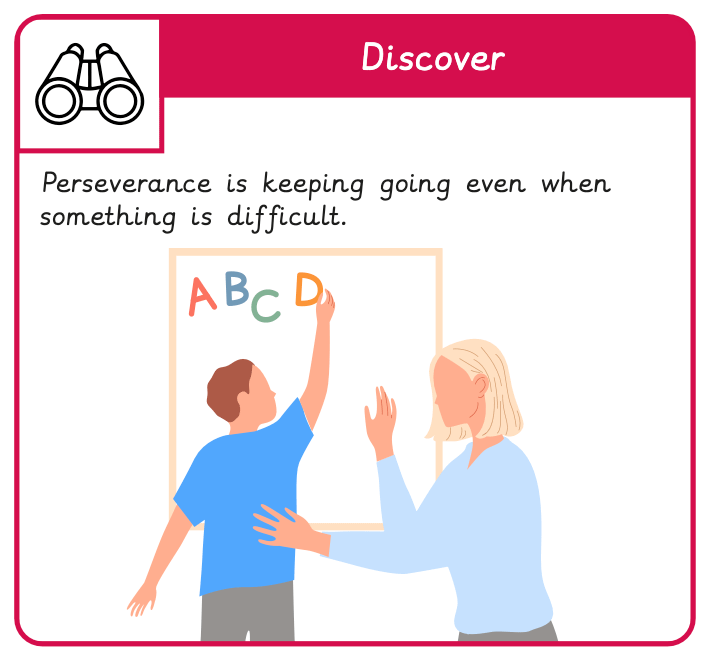
Knowledge Organiser – Wellbeing Year 2
Aimed at pupils, a visual summary of the unit's key knowledge, techniques and vocabulary.
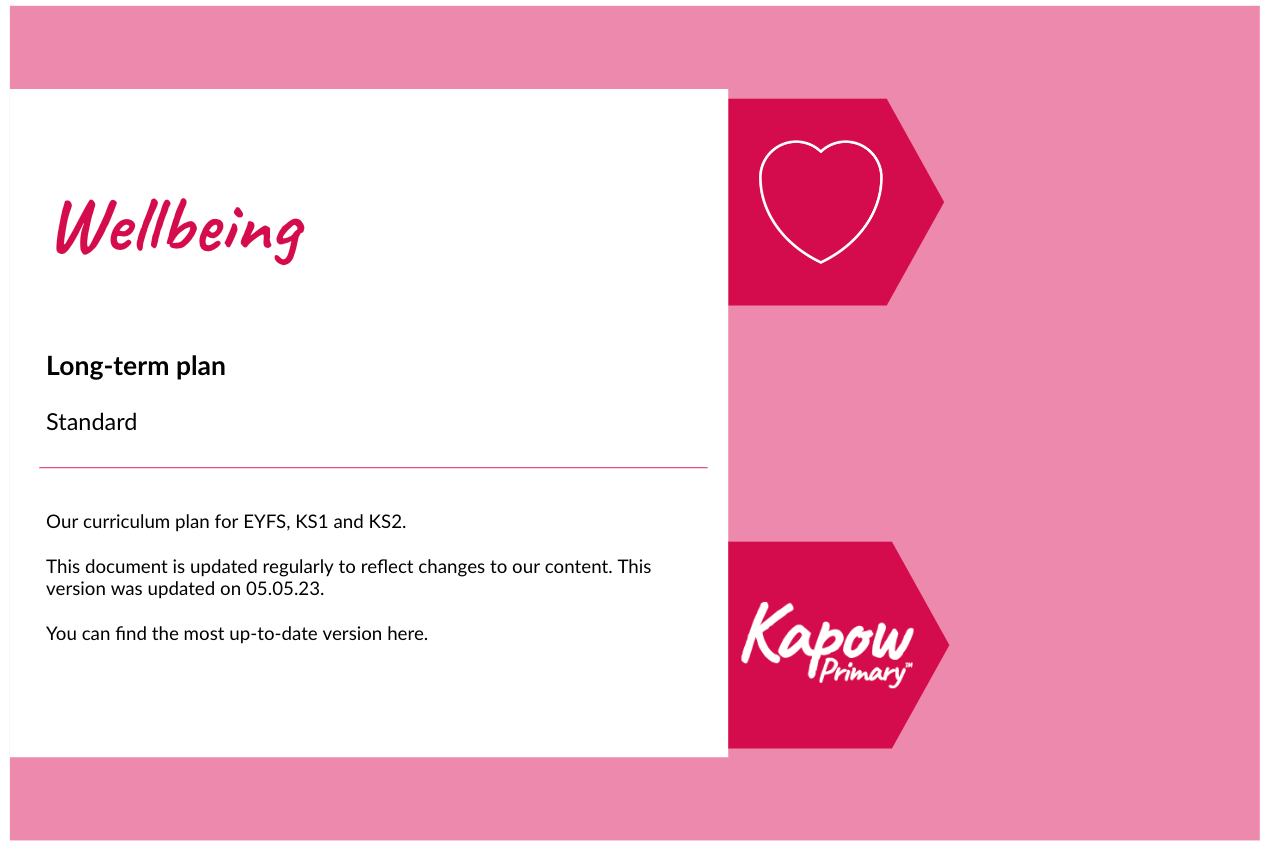
Wellbeing: Long-term plan
An overview of our wellbeing curriculum.
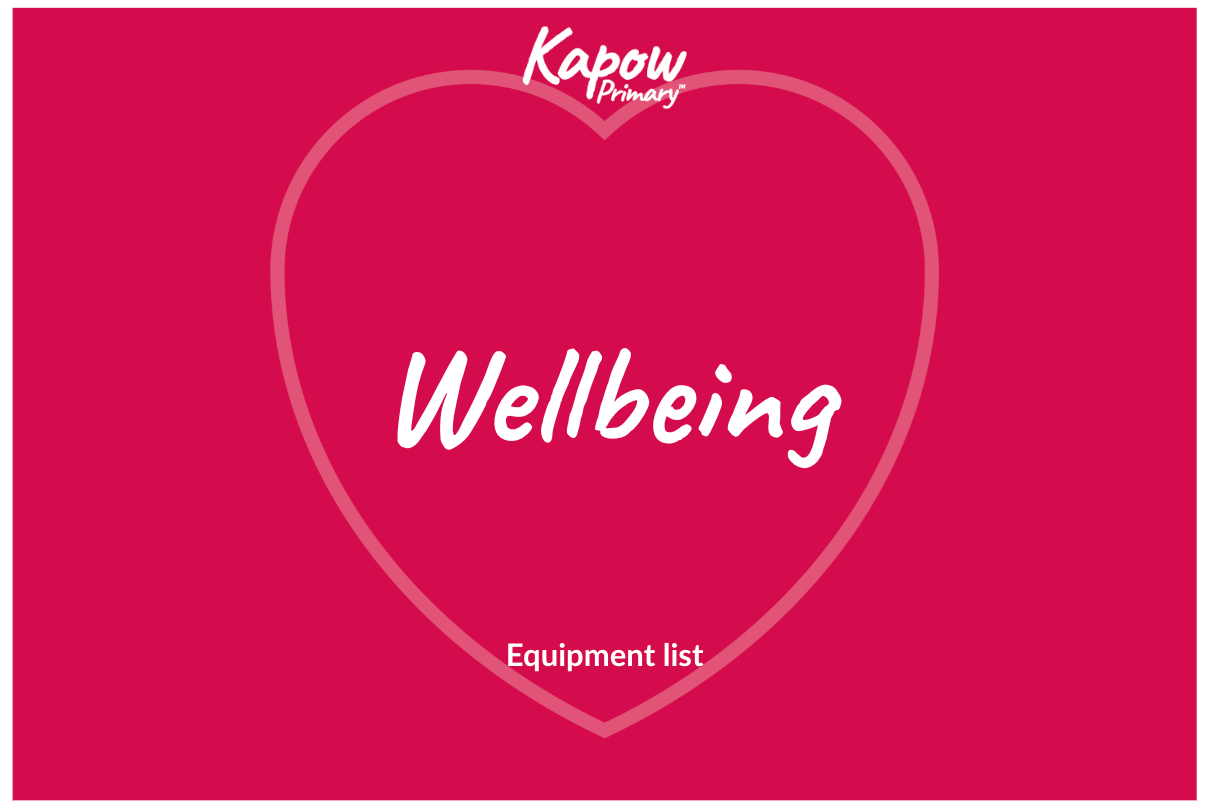
Wellbeing: Equipment list
A downloadable list detailing the required resources for Kapow Primary's free Wellbeing scheme of work.
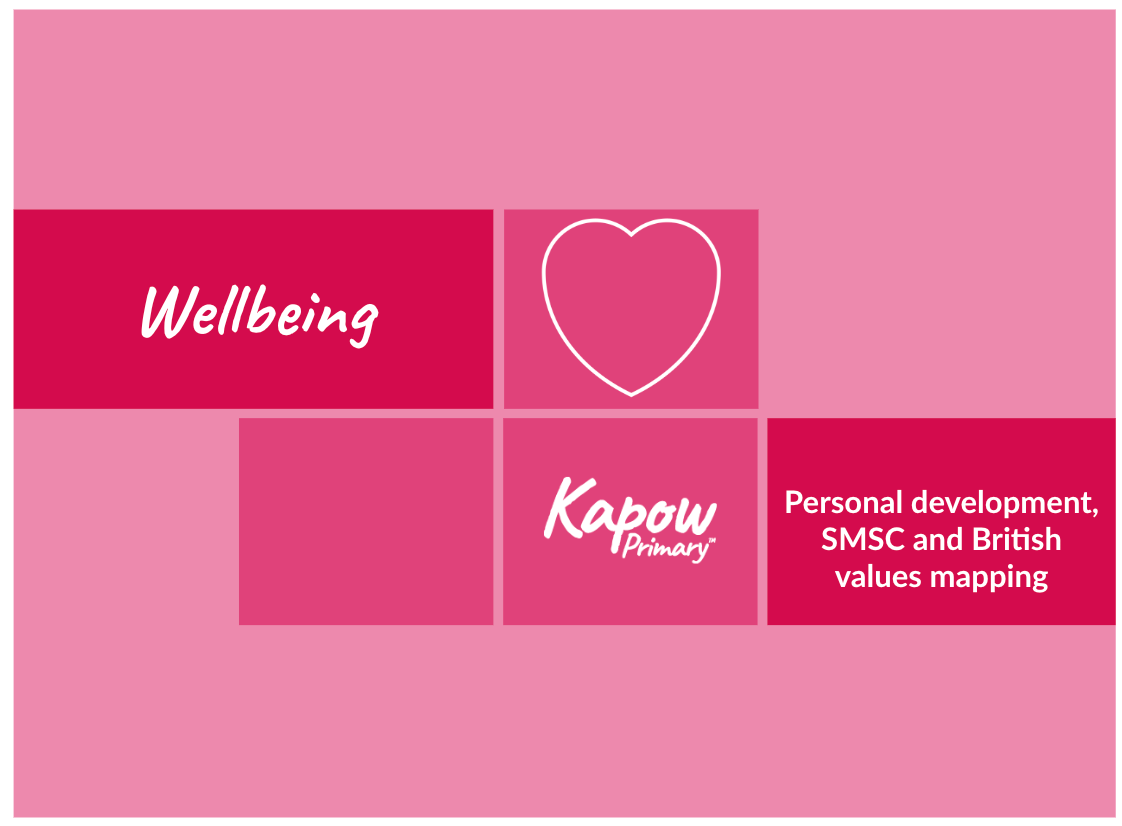
Wellbeing: Personal development, SMSC and British values mapping
A user-friendly document mapping Ofsted's SMSC descriptors, British values and Personal development statements against Kapow Primary's Wellbeing curriculum.
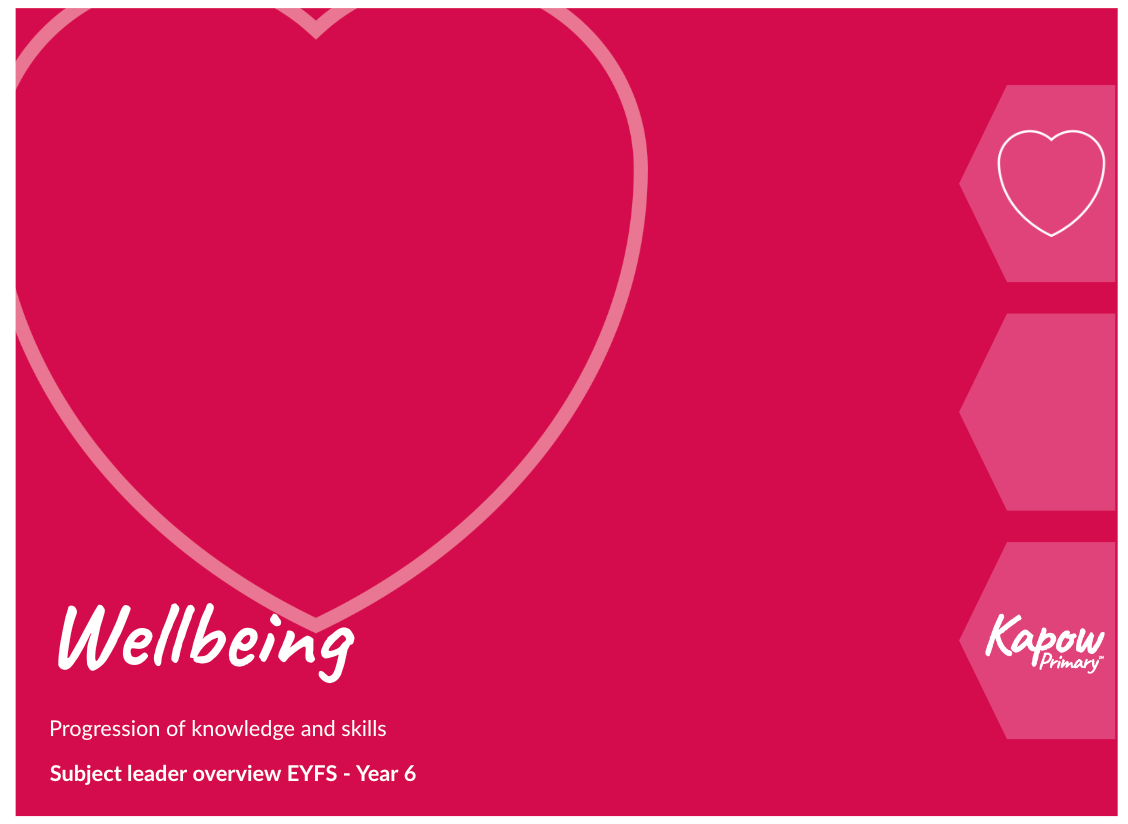
Wellbeing: Progression of knowledge and skills
Showing how pupils' knowledge and skills develop when following the Kapow Primary Wellbeing curriculum.
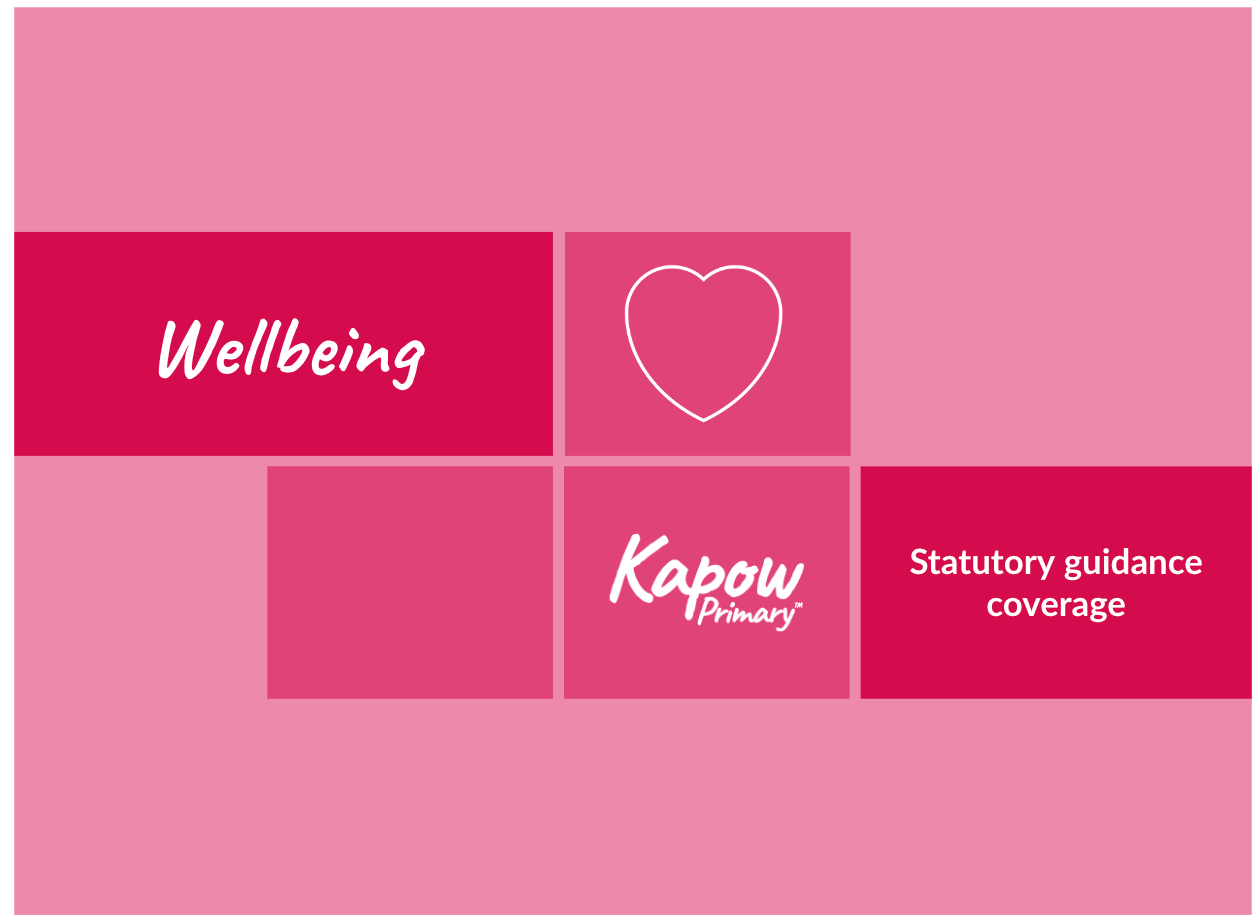
Wellbeing: Statutory guidance coverage
This document shows which Kapow Primary Wellbeing lessons give coverage of the statutory RSE and Health Education published by the…
Cross-curricular opportunities
PSHE
- PSHE Association’s Programme of Study for PSHE Education.
English
Pupils should be taught to:
- Listen and respond appropriately to adults and their peers.
- Ask relevant questions to extend their understanding and knowledge.
- Maintain attention and participate actively in collaborative conversations, staying on topic and initiating and responding to comments.
- Use spoken language to develop understanding through speculating, hypothesising, imagining and exploring ideas.
- Participate in discussions, presentations, performances, role play, improvisations and debates.
See National curriculum – English key stages 1 to 2.
Art and design
Pupils should be taught:
- To use a range of materials creatively to design and make products
See National curriculum - Art - Key stages 1 and 2.
British values:
- Mutual respect.
- Individual liberty.
- See Promoting fundamental British values as part of SMSC in schools (non-statutory advice).

